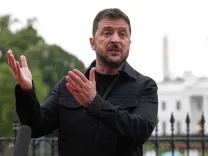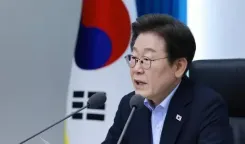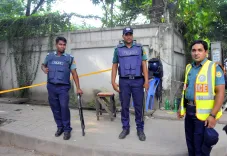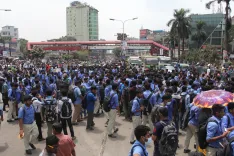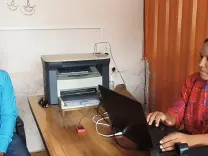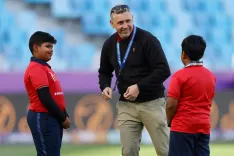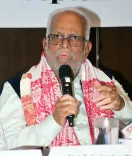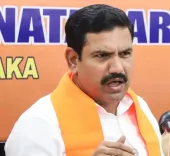Why is Awami League's student wing absent in the critical Dhaka University elections?
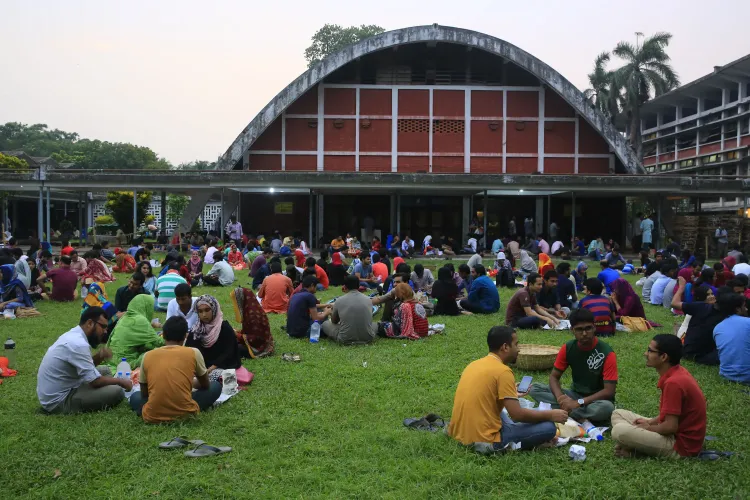
Synopsis
Key Takeaways
- DUCSU elections are crucial for student representation.
- Absence of BCL signifies shifting political dynamics.
- Female voters hold significant electoral power.
- Major student organizations are actively contesting.
- DUCSU's historical role as a political powerhouse continues.
Dhaka: The Dhaka University Central Students' Union (DUCSU) elections are set to take place on Tuesday after a hiatus of more than six years. Various student-led factions and political party-affiliated organizations are participating in the election scheduled for September 9. These include the Bangladesh Nationalist Party (BNP)-backed Jatiyatabadi Chhatra Dal (JCD), the left-leaning Pratirodh Parshad (PP) or Resistance Council, which consists of seven organizations, and the Ganatantrik Chhatra Sangsad (GCS) or the Democratic Student Council, featuring key members from the influential Students Against Discrimination (SAD) group that led the July Uprising and toppled former Prime Minister Sheikh Hasina. This group is seen as the student wing of the National Citizen Party (NCP) due to their shared ideologies and organizational ties.
The Islami Chhatra Shibir (ICS), which is the student wing of Jamaat-e-Islami (JeI), has dismissed the contributions of national minorities during Bangladesh's Liberation War. The ICS-supported panel is contesting under the banner of 'Oikkoboddho Shikkharti Jote' (United Students' Alliance), with Abu Sadik Kayem, a prominent figure, vying for the Vice President position.
Shortly after Dhaka University's establishment on July 1, 1921, student unions emerged in three halls: Muslim Hall, Jagannath Hall, and Dhaka Hall. The Dhaka University Students' Union (DUSU) was formed in the 1923-24 academic year, and its constitution was established on October 30, 1925. In 1953, after three decades, DUSU was renamed the Dhaka University Central Students' Union (DUCSU) through constitutional amendments.
Kayem’s involvement during the July Uprising last year has amplified his visibility, earning recognition from journalists and leaders of participating groups, thereby enhancing his public standing. The ICS anticipates considerable backing from madrasa (religious Islamic schools) students. Key factors in this election include female voters and residents of Jagannath Hall. Jagannath Hall has 2,222 voters, all belonging to minority communities, making up approximately six percent of the total electorate.
However, what is particularly alarming is the noticeable absence of the Bangladesh Chhatra League (BCL)—the student wing of the banned Awami League party—in these DUCSU elections. Most of its prominent leaders are either in custody or have gone into exile. Its supporters are tasked with ensuring that the ICS or the ICS-backed United Students' Alliance do not perform well in the elections.
The DUCSU election serves as a practical test for the BCL, showcasing its influence despite its absence from the electoral arena. Women voters constitute a significant 48 percent of the DUCSU electorate—around 18,959 out of a total of 39,874 registered voters. The voting patterns could reveal that women's preferences might sway the election results.
How the BCL navigates student issues and retains its leadership role indirectly will be crucial, especially in light of the upcoming parliamentary elections in Bangladesh scheduled for February 2026. There are 45 candidates contesting for the Vice President (VP) position, including five women. For the General Secretary (GS) role, there are 19 candidates, with only one woman vying for the position. The Assistant General Secretary (AGS) post sees 25 candidates.
The prevailing culture of dominance and mistreatment within halls continues to be a pressing concern. All political parties have nominated student leaders who advocate for student rights. Students desire DUCSU to actively engage in fostering peace, discipline, and a conducive learning atmosphere on campus, alongside initiatives such as debates, speeches, recitations, indoor sports, and cultural events. Major student organizations hold high hopes, emphasizing that every student should have access to hall accommodations and that the 'gono' room culture, or guest room culture, must not make a return. The youth are increasingly rejecting the violence that has marred campus life.
DUCSU is often referred to as the 'Second Parliament' of Bangladesh. Throughout the history of East Pakistan and Bangladesh, significant events like the Bhasa Aandolan (Language Movement), Choi Dafa Karmasuchi (Six-Points Demand), and Unosottorer Gono Abhyuthan (Mass Uprising of 1969) were spearheaded by DUCSU, contributing to the emergence of Bangladesh. DUCSU played a pivotal role in the downfall of military dictator General Hussein Muhammad Ershad.
Over its 100-year history, DUCSU elections have only been conducted 37 times. Following the restoration of democracy in 1991, DUCSU elections were suspended due to widespread political violence. In 2019, elections for DUCSU and hall unions were held after a prolonged hiatus, with Nurul Haq Nur of Bangladesh Chhatra Odhikar Parishad-Bangladesh Students’ Rights Council (BSRC) elected as Vice President and Golam Rabbani of BCL as General Secretary.
As anxiety overshadows excitement among student representatives, particularly regarding the presence of BCL activists in dormitories, the upcoming DUCSU elections during this interim administration must confront longstanding structural changes. The role of the Vice Chancellor is largely symbolic, providing a necessary foundation for governance.
The Jatiyatabadi Chhatra Dal (JCD) backed by the Bangladesh Nationalist Party (BNP) and Jamaat-e-Islami's (JeI) student wing, Islami Chhatra Shibir (ICS), remain wary of any moves by BCL during the election, which may disrupt student unity both on campus and nationally. The political manipulation that led to the July Uprising has prompted a reevaluation of student movements. Historically, DUCSU has frequently been entangled in the volatile arena of Bangladeshi national politics. This election will reflect the intentions of Bangladeshi society—whether they will adhere to a secular democratic framework or align with radical jihadists advocating for Islamic Sharia law. Undoubtedly, political control and polarization remain prevalent.
(The writer is an expert on South Asia and Eurasia, previously associated with the Manohar Parrikar Institute for Defence Studies and Analyses. The views expressed are personal.)

